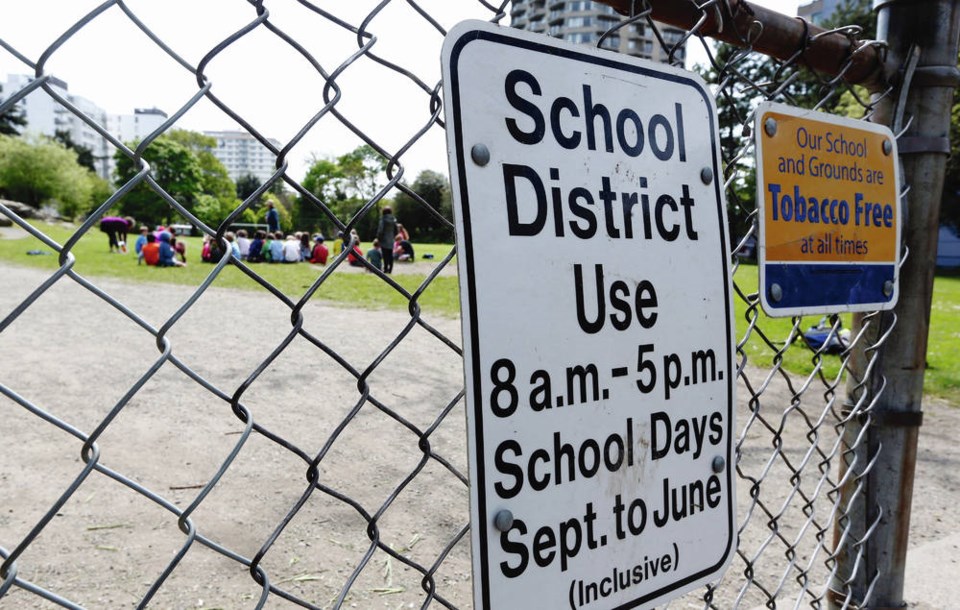As the new principal of a 450-pupil inner-city K-7 school, I soon learned that, given the nature of the school population, I had some non-academic work to do with the kids before it was likely they could settle down into any kind of school routine.
Many of them lived in that neighbourhood with a single parent who was waiting for the other parent, almost always the dad, to serve out his time in the nearby federal penitentiary.
It was a school population that included some pretty tough and troubled kids.
For reasons I could only guess at, some of these kids had learned, from early childhood, to be suspicious of authority, especially police officers, who were not to be trusted at all.
Benny in Grade 7 was a good example. A slightly built boy, Benny was given to sudden fits of rage that would erupt out of nowhere, sometimes in class, sometimes in the playground.
One day, I found Benny a block away, sitting on a bus bench, and asked him if he could feel when these rages were building. He said he could and the agreement we reached, Benny, his teacher and myself, was that when he could feel this rage coming on, he would ask his teacher to be excused and he would come and see me.
I would send Benny out to walk around the block on a promise to come straight back.
Risky, but he always did.
Every time.
As principal, I had gone out of my way to establish a solid professional relationship with two members of the city’s police department, especially the school liaison officer, who knew the community and its problems only too well.
Turns out that Benny’s dad, a violent man who had done time for attempted murder, was now working as a deckhand on a container ship. When he came home from a trip, Benny would be sent out of the apartment into the street and told not to come back until after midnight.
The liaison officer, a young constable, knew about this and when he was on patrol and found Benny wandering the streets, he would sometimes find a place to sit with the kid and talk about “stuff” until it was safe for Benny to go home.
That was nearly 40 years ago and just recently Benny, who now runs a successful Harley repair and customizing business, showed up on my Facebook page.
To make a long story short, we corresponded a bit and Benny wrote: “You know had it not been for you and that cop who would talk to me about anything I’d probably be following in my father’s footsteps. But somehow, between the two of you, I learned that it was safe to trust teachers and some or probably most cops like him — so thanks for that. Changed my life.”
As a result of many such experiences, I became a firm believer in the value of including a police officer as an honorary member of the school staff.
I’ve watched a liaison officer sit on a bench in the playground of an elementary school surrounded by kids who had a million questions for him or her, and I’ve watched a liaison officer play basketball with junior and senior secondary kids in the school gym.
Trust that develops between children and the police doesn’t always happen in circumstances like Benny’s, but it does happen through familiarity, beginning as early as in the kindergarten classroom or playground, or as late as in senior high school, in the gym or even in the hallways.
At one point in my career, I gave some lectures at the then Vancouver Police Academy about working with kids in classrooms, in playgrounds and on the street.
My classes often included some hardened officers, many of whom had voluntarily transferred over from the gang or drug squads, and when I asked them why they had done this, the response was always similar: “I’m tired of beating my head against a wall of distrust. If we are ever going to make a difference on the street, it will be through working with kids now, before it’s too late, before they’ve been poisoned and indoctrinated by how the cops are portrayed on TV as gun-toting bullies — and school is the best place to change that.”
As a teacher or principal or superintendent, I could develop “Police in the Schools” policy papers until my keyboard exploded, but none of those policies could make the same kind of difference for kids as that one young liaison officer did for Benny and so many others like him.
If trust between a community and its police service is ever to reach its potential, that trust will begin with police liaison people in schools.
Geoff Johnson is a former superintendent of schools.



